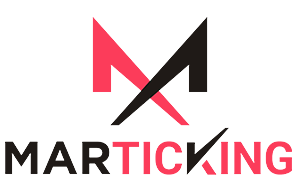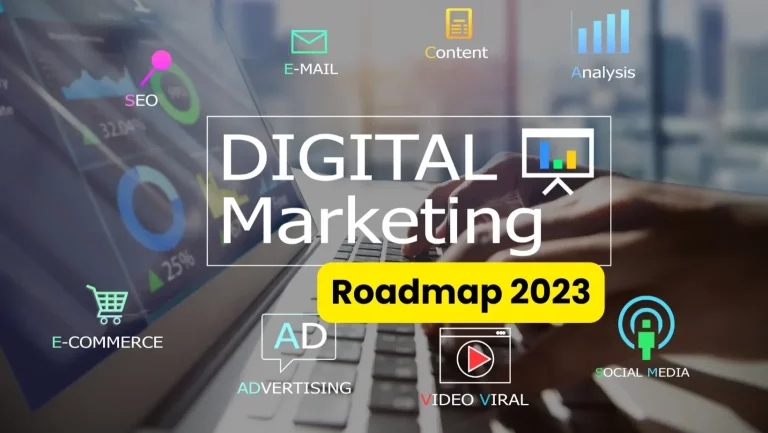In today’s rapidly evolving digital landscape, mastering the art of digital marketing is crucial for individuals and businesses aiming to thrive online. The digital marketing ecosystem encompasses many strategies, tools, and platforms, making it both exciting and challenging to navigate.
“Your Personal Roadmap to the Digital Marketing Experience” is a comprehensive guide designed to empower you with the knowledge and skills needed to navigate the dynamic world of digital marketing successfully.
Whether you are a seasoned marketer looking to stay ahead of the curve or a novice eager to explore the vast opportunities online, this roadmap will serve as your compass. We will journey through the fundamental principles, cutting-edge strategies, and practical insights that define the digital marketing landscape.
From establishing a strong foundation to mastering advanced techniques, this roadmap is crafted to be your go-to resource for transforming your digital marketing endeavours into powerful and impactful campaigns.
Digital marketing roadmap
Creating a robust digital marketing roadmap involves a strategic sequence of steps to achieve marketing objectives effectively. These are the marketing road map templates that are discussed as under:
Define Your Goals and Objectives:
Establish SMART goals that are specific, measurable, achievable, relevant, and time-bound. Ensure alignment with broader business objectives for a cohesive strategy.
Understand Your Target Audience:
Develop detailed buyer personas to gain insights into audience demographics, interests, and behaviors. Conduct comprehensive market research to identify trends and preferences that shape your targeting strategy.
Audit Your Current Digital Presence:
Evaluate the performance of your existing digital assets, including the website and social media profiles. Identify areas for improvement and optimization to enhance overall online presence.
Develop a Content Strategy:
Craft valuable and relevant content tailored to resonate with your target audience. Create a content calendar to maintain consistency across various platforms, ensuring a cohesive brand narrative.
Optimize for Search Engines (SEO):
Conduct thorough keyword research to understand how your audience searches for content. Implement SEO strategies to optimize website content and structure for improved search engine visibility.
Social Media Marketing:
Select appropriate social media platforms based on audience preferences and business objectives. Develop a posting schedule and actively engage with your audience to build a meaningful online community.
Email Marketing:
Build and segment an email list to deliver targeted and personalized email campaigns. Leverage email marketing to nurture relationships, drive engagement, and achieve conversion goals.
Paid Advertising:
Expand reach and visibility by utilizing paid channels such as Google Ads and Facebook Ads. Set a budget, define target audiences, and closely monitor performance metrics for optimization.
Analytics and Data Analysis:
Implement robust analytics tools to track website and campaign performance. Analyze data to derive actionable insights, enabling informed decision-making and continuous optimization.
Conversion Optimization:
Identify and enhance elements on your website to improve conversion rates. Conduct A/B testing on landing pages and calls-to-action to refine and optimize user journeys.
Mobile Optimization:
Ensure your website and content are optimized for mobile users, considering the increasing reliance on mobile devices. Explore mobile advertising strategies to reach and engage with a broader audience.
Customer Relationship Management (CRM):
Implement a CRM system for efficient customer interaction management. Utilize CRM data to personalize marketing efforts and enhance overall customer experience.
Continuous Learning and Adaptation:
Stay informed about industry trends and emerging technologies to remain agile in the dynamic digital landscape. Adapt strategies based on performance and evolving market conditions for sustained success.
Monitor and Report:
Regularly monitor key performance indicators (KPIs) to gauge the effectiveness of your campaigns. Generate comprehensive reports to assess overall performance and guide strategic decision-making.
Scale and Expand:
Identify successful strategies and scale them for broader impact and reach. Explore new channels and opportunities for strategic expansion, staying proactive in seeking growth avenues.
Digital marketing company
Establishing a successful digital marketing company involves combining strategic planning, industry expertise, and a deep understanding of the ever-evolving digital landscape. Here’s a guide to help you navigate the key steps in building a digital marketing company:
Define Your Niche and Services:
Identify a specific niche or industry you want to focus on. Define a comprehensive list of digital marketing services you offer, such as SEO, social media management, content creation, paid advertising, etc.
Conduct Market Research:
Analyze the competitive landscape in your chosen niche. Identify target clients, their needs, and the unique challenges they face in digital marketing.
Develop a Unique Value Proposition (UVP):
Clearly articulate what sets your digital marketing company apart. Highlight your expertise, innovative approaches, or specialized services that distinguish you from competitors.
Build a Professional Website:
Create a visually appealing and user-friendly website that reflects your brand. Clearly communicate your services, showcase case studies or portfolios, and provide easy contact options.
Invest in Branding and Positioning:
Develop a strong brand identity that reflects your company’s values and personality. Establish a clear positioning statement that communicates your unique strengths to potential clients.
Assemble a Skilled Team:
Recruit professionals with expertise in various digital marketing disciplines. Ensure your team stays updated on industry trends through continuous training and development.
Establish Pricing and Service Models:
Determine your pricing structure for different services. Define your service models, whether you’ll offer one-time projects, ongoing retainer services, or a combination.
Develop Sales and Marketing Strategies:
Implement a comprehensive marketing strategy to generate leads and promote your services. Build a sales team or establish effective sales processes to convert leads into clients.
Leverage Digital Marketing for Your Company:
Practice what you preach by implementing effective digital marketing strategies for your own company. Showcase your expertise through blogs, social media, and other channels.
Client Onboarding and Relationship Management:
Develop a streamlined onboarding process for new clients. Establish strong client relationships through transparent communication and regular updates.
Invest in Technology and Tools:
Utilize digital marketing tools to streamline processes and enhance productivity. Stay updated on the latest technologies and trends in digital marketing.
Monitor and Analyze Performance:
Implement analytics tools to track the performance of your digital marketing efforts. Review key performance indicators (KPIs) regularly and adjust strategies based on data-driven insights.
Ensure Legal Compliance:
Understand and comply with legal and ethical standards in the digital marketing industry. Clearly communicate your privacy policy and terms of service.
Networking and Partnerships:
Attend industry events, conferences, and networking opportunities. Establish partnerships with other businesses or agencies to expand your reach.
Stay Agile and Adapt:
Continuously adapt your strategies to changes in the digital landscape. Stay informed about emerging technologies, trends, and shifts in consumer behaviour.
Conclusion:
In conclusion, developing and implementing a comprehensive marketing roadmap is essential for navigating the dynamic and competitive landscape of the digital world. By carefully defining your goals, understanding your audience, and leveraging a mix of digital marketing channels, you can build a robust online presence and drive business success.
The roadmap serves as a guide, offering a strategic framework to optimize your website, engage with your audience on social media, and deliver targeted content through various channels.


